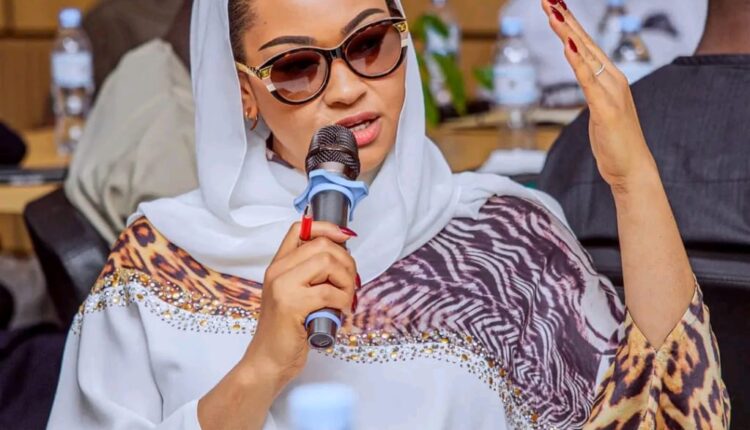Solid Minerals Development: Akpoti-Uduaghan Urges Nigeria to Learn from Oil’s Painful Lessons
At the just-concluded Ministerial–Legislative Retreat on Solid Minerals Development, Senator Natasha Akpoti-Uduaghan delivered a warning that cut through the optimism of the day:
Nigeria must not allow its solid minerals sector to become another oil industry — rich in potential, ruined by secrecy.
The retreat, attended by Minister of Solid Minerals Development, Dr. Dele Alake, lawmakers including Senator Ekong Sampson, and policy heavyweights such as former Sokoto Governor Aminu Tambuwal, was designed to chart a path for sustainable growth in the mining sector.
But Akpoti-Uduaghan’s message was clear, speed without scrutiny is a road to failure.
“While the Honourable Minister’s initiatives are driving with great speed and that is commendable,we must also apply the brakes,” she cautioned. “We must meticulously cross the T’s and dot the I’s so we don’t fall into the same pitfalls that wrecked the oil sector.”
The Kogi Central lawmaker placed transparency at the core of her intervention — not just as an ideal, but as a practical shield against corruption and waste.
She called on the Ministry to publish all Memoranda of Understanding (MoUs), contracts, and partnerships signed with investors and operators in the sector, invoking the Freedom of Information (FOI) Act as a tool for public accountability.
“We would like all the various MoUs you have entered to be made available to Nigerians,” she said. “Deploy the Freedom of Information Act, because we are in an age where transparency must not just be a slogan, but a working principle.”
She argued that digitizing such records and making them public on the Ministry’s website would not only strengthen investor confidence but also rebuild citizens’ trust in government.
“We cannot begin to demand accountability if transparency is not in place,” she added. “Let Nigerians see what their government is signing on their behalf.”
Drawing from her constituency — one of Nigeria’s most mineral-rich regions — Akpoti-Uduaghan painted a vivid picture of abundance without prosperity.
“Kogi Central has over 52 solid minerals in commercial quantity,” she said. “Yet we are people impoverished in the land of plenty.”
She recalled a recent conversation where she first learned of her community’s share in Nigeria’s gemstone reserves — including ruby, emerald, and tourmaline — already being mined in Cross River State.
“It was shocking to know these minerals are being extracted, yet I don’t think Nigeria derives meaningful revenue from them,” she lamented.
Her words echoed a larger frustration: that resource wealth continues to enrich a few, while host communities remain trapped in poverty.
The senator’s appeal was as much about policy foresight as it was about moral urgency.
Nigeria, she said, cannot afford another resource curse.
“In the solid minerals sector, we must proceed carefully,” she warned. “Transparency is not just an ethical choice; it is an economic strategy.”
She pressed for a robust legislative framework to guide the emerging Nigerian Solid Minerals Company; one that clearly defines environmental obligations, host community benefits, and operational standards to prevent the chaos that once engulfed the oil industry.
“Legislation will ensure that administrative and operational standards are upheld,” she noted. “It will also protect the environment and ensure communities are not left behind as we industrialize.”
Turning to fiscal matters, Akpoti-Uduaghan demanded clarity on the National Resources Fund, which receives 1.68 percent of the Consolidated Revenue Fund of the Federation — a provision meant to support natural resource development.
“This account should by now contain trillions of naira,” she said. “How much has been generated? How much do we have in that Fund today? Nigerians deserve to know, these are public resources.”
Her remarks drew nods across the hall, underscoring growing calls for fiscal transparency in Nigeria’s extractive industries.
Akpoti-Uduaghan’s final appeal was simple yet profound: the solid minerals sector must be different.
It must be the place where Nigeria gets it right.
“It won’t take much to publish this information online,” she said. “When we show Nigerians what we are doing, we build trust — and when we build trust, we build a stronger nation.”
Her warning lingers — a reminder that Nigeria’s next boom could either redeem or repeat its past.
“Nigeria’s solid minerals can define its future — but only if managed with the honesty that oil never had.”

